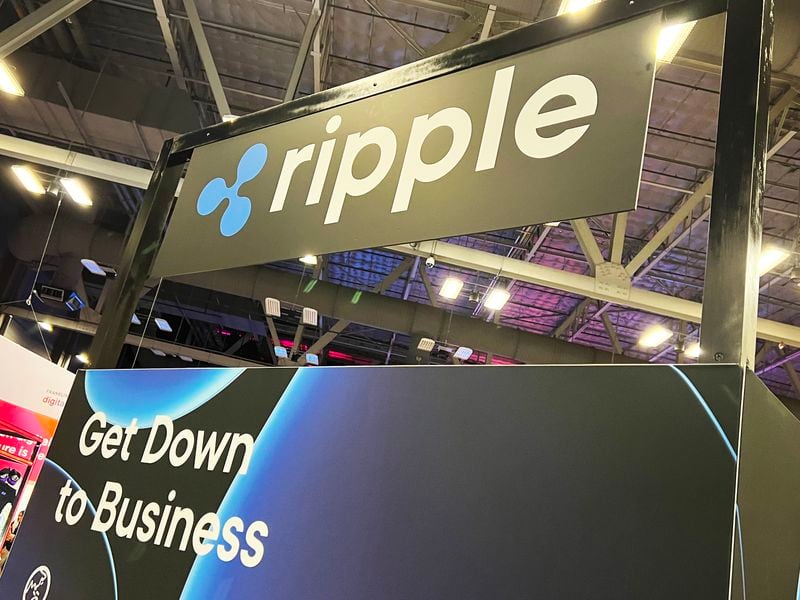Web3 Can Actually Compete in the Computer Chip Race
The GPU shortage will drive mainstream adoption of Web3 infrastructure.
To train artificial intelligence (AI) models, high-end graphics processing units (GPUs) like the NVIDIA A100s and H100s are required. However, these GPUs are only needed for a limited period of time for each model, are very expensive and have a constrained supply – this combination means owning them is out of reach for many startups.
Amy James and Devon James are co-executive directors of the Web3 Working Group.
Further, many people have serious concerns about AI safety, from worries about how deep fake images could harm people or the economy to fears of a Terminator-like malevolent AGI determined to destroy society. [AGI stands for artificial general intelligence, meaning an autonomous system that surpasses human capabilities, aka “the Singularity.]
Decentralized physical infrastructure networks (increasingly known as DePIN), specifically compute and storage networks, offer the solution and will make AI and Web3 go mainstream for two reasons: access and safety.
Despite existing for nearly a decade, use of Web3 has remained limited to a narrow audience of crypto believers. This has befuddled enthusiasts who had expected Web3 to be adopted even faster than the World Wide Web. After all, the original web protocol had to start from nothing while decentralized Web3 protocols have the benefit of the existing web.
But mainstream users have not yet joined decentralized social networks or use protocols like decentralized file storage because they don’t have a strong enough need for them. For most people, despite awareness of Web2 platforms engaging in mass surveillance and manipulation, these services work “just fine” and their powerful network effects lock users in.
The emergence of AI will lead to a breakout moment for Web3 infrastructure because these protocols offer solutions to the GPU shortage and data challenges faced by AI startups. DePIN will transform AI development and, in the process, onboard the first mainstream users to Web3 protocols.
AI startup founders have the technical ability and motivation to push past the friction that has held back mainstream audiences so far, such as having to buy tokens via a clunky user experience, because these founders require access to high quality, expensive, difficult to acquire GPUs in order to succeed.
Protocols like Akash, often described as “Airbnb for GPUs,” provide decentralized marketplaces for GPU owners to rent their resources. These protocols democratize AI innovation by making high-cost resources accessible to smaller players, all while allowing hardware owners to generate passive income.
And while AI startup founders will come to Web3 protocols to get access to the GPUs they need, they will stay because these protocols unlock new features that aren’t available on the Web, allowing Web3 to compete effectively.
File storage protocols like Arweave disrupt the data oligopoly by providing a one-time-payment model for permanent data storage. Using permanent storage for training data makes machine learning open and verifiable, enhancing trust for AI models.
Right now AI products from large companies like OpenAI’s ChatGPT and Google’s Bard are leading the movement, but this is a case where open source versions have a competitive advantage.
AI can only know the difference between two round objects like an apple and a baseball because it’s been told thousands of times by human inputs which is which. We have all been unknowingly creating training data for AI models when we fill out a CAPTCHA by selecting the boxes that have bicycles or traffic lights or bridges.
When this type of training data is proprietary and controlled by a company, can it be trusted?
The AI use case is unique in that open, publicly-available training data will not just be more trustworthy, it will be better quality. Open models can exchange information and accelerate their learning, making each next version better in a virtuous spiral of iteration.
Further, open source framework like zkML, or “zero-knowledge machine learning,” a research field being pursued by Sam Altman’s Worldcoin project, offer cryptographic proofs for AI models verifying they were trained on specific datasets, thus enhancing the credibility of the output.
Although some fear AI will lead to a dystopian authoritarian future, DePIN provides the antidote for both trustworthy code and the physical infrastructure networks on which it runs. If startup founders build their apps on infrastructure controlled by internet Goliath’s like Amazon Web Services (AWS), it is not only difficult for startups to compete because they have to pay a huge portion of revenues to their competitor, but they also take on counterparty risk.
If a Web3 app is successful it could be seen as competition by the Amazons and Googles on which they depend, and therefore might be cut off from the infrastructure they need. DePIN offers founders infrastructure that is more reliable, resilient to attack and much less expensive.
And the benefits of DePIN for AI startups extend beyond training data and hardware access. As deep fakes become increasingly common and erode public trust in online content – such as the “Pentagon explosion” photos, which caused a brief $500 billion market reaction – Web3 protocols provide the solution via public key cryptography.
To those of us in the crypto space the benefits of cryptographic signatures seem obvious, but AI doomers have yet to discover this solution. Public-key cryptography provides unique, unforgeable signatures which can be used to establish provenance and evaluate the trustworthiness of content.
The GPU shortage could end up motivating startup founders to use DePIN protocols, but the features these protocols unlock will help the apps built on them win against Web2 incumbents. AI apps built with decentralized infrastructure will have the advantages of optimized job routing to reduce latency, faster and lower-cost commerce via micropayments, all kinds of smart contract functionality and automatic filtering of data to keep deep fakes and spam out of our feeds.
DePIN offers better access and features at lower costs to AI startups, creating fertile ground for development and competition. Users of these emergent AI applications will become users of Web3 protocols, often without even realizing it.
This behind-the-scenes integration will introduce users to the benefits of the decentralized web, providing a seamless experience that helps to overcome the traditional hurdles of Web3 adoption. AI and Web3 are not in competition, they need each other like peanut butter and jelly.









